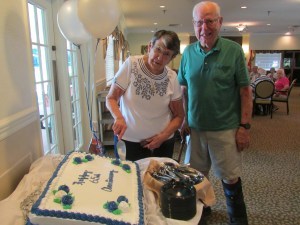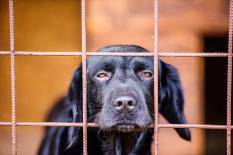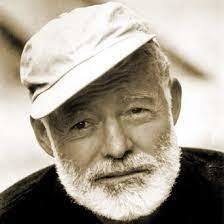The in Loss
Getting a little philosophical this morning, so if it’s early and you just want to drink your coffee in peace, I absolve you of responsibility. It’s been a strange couple of weeks on Trout Brook, and bound to get stranger, and there’s been a little more thinking than usual.
Those of us with aging parents  know how the life equation flip-flops at a certain inflection point, how the giver of care becomes the taker, and all the love and tension that go along with that. It’s not a new story, nor a particularly compelling one, except when it’s happening to you and then you are riveted and it is difficult to think about anything else. What that point brings, sometimes, is a sadness and a lean toward depression.
know how the life equation flip-flops at a certain inflection point, how the giver of care becomes the taker, and all the love and tension that go along with that. It’s not a new story, nor a particularly compelling one, except when it’s happening to you and then you are riveted and it is difficult to think about anything else. What that point brings, sometimes, is a sadness and a lean toward depression.
I’ve been watching Ken Burns’ excellent documentary about Ernest Hemingway and was struck all over again with how tortured and complicated his family life was, some of that inherited and some of it of his own doing. Depression and suicide ran in the family like blue eyes. He treated lovers, wives, and friends all horribly, apparently in service to a self-image that would not concede he was less than great and perfect and wonderful in all ways. Except, of course, when the black dog hit him and the depression consumed his brain.
Most writers, most artists I think, flirt with the black dog off and on.  Writing is a narcissistic occupation even in its most innocent exercise and no writer, I hope, is content to examine only the sunny side of a character or situation. It’s a necessary part of the work to tiptoe to the edge of the crevasse and stared down into it, maybe even a horrible pleasure sometimes.
Writing is a narcissistic occupation even in its most innocent exercise and no writer, I hope, is content to examine only the sunny side of a character or situation. It’s a necessary part of the work to tiptoe to the edge of the crevasse and stared down into it, maybe even a horrible pleasure sometimes.
I suspect the Hemingway  history is part of what underpins the still-prevailing cultural myth that writers and painters and sculptors and musicians and dancers must all suffer to practice their art at the highest level. It’s the kind of thinking that made Dave Brubeck take on a heroin addiction, to see if it would enhance his already magnificent talent. And I do think, when we’re young, we might embrace the possibility as if it were a simple equation: I hurt, therefore I create.
history is part of what underpins the still-prevailing cultural myth that writers and painters and sculptors and musicians and dancers must all suffer to practice their art at the highest level. It’s the kind of thinking that made Dave Brubeck take on a heroin addiction, to see if it would enhance his already magnificent talent. And I do think, when we’re young, we might embrace the possibility as if it were a simple equation: I hurt, therefore I create.
What I hope is that most artists realize, most people realize, that after a toe-dip in that black lagoon, that the making—writing, painting, building furniture—is more an occasion of joy than pain. The best work we do does not flourish in the dead crushed rock of depression or even unhappiness, but in joy. We do our work out of love as much as necessity, and depression, unhappiness, addiction, are not aids to creating, but impediments.
So as I watch my parents age and count their diminishments, I see them also learn that the losses they suffer are still less than the joy that remains, that always, always, there is something to come next, and it is well worth staying around for.
Lea Wait's Blog
- Lea Wait's profile
- 506 followers



